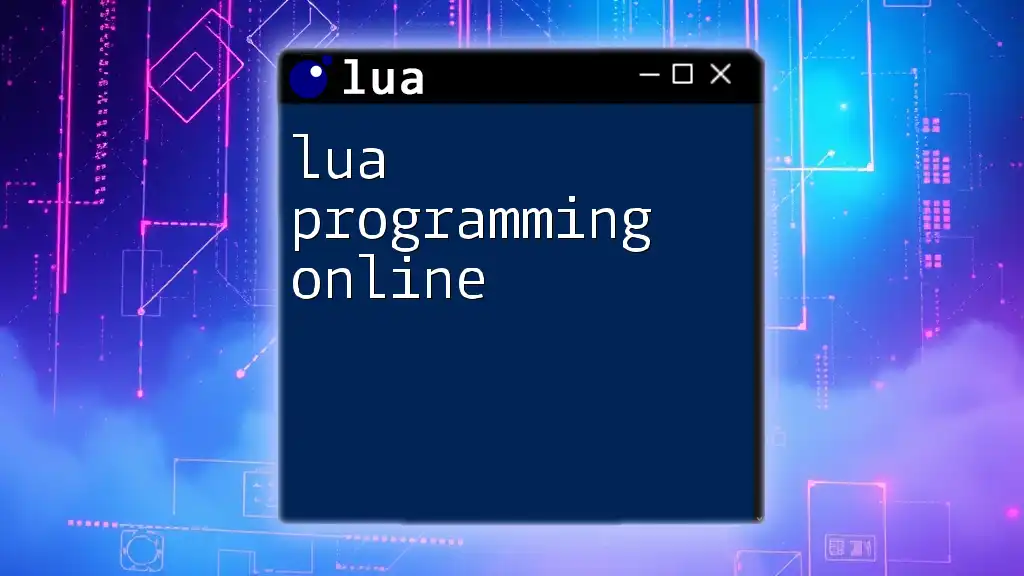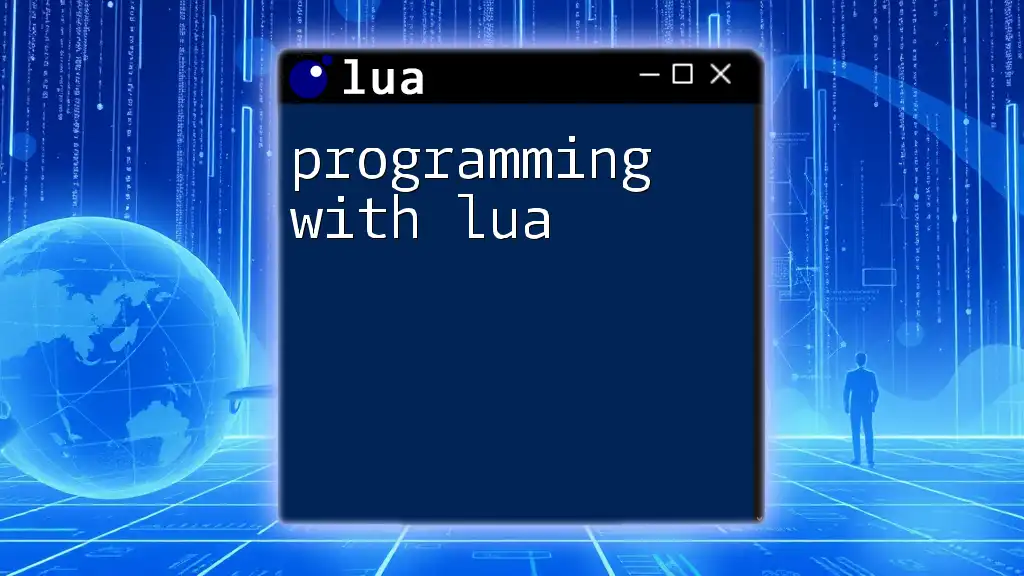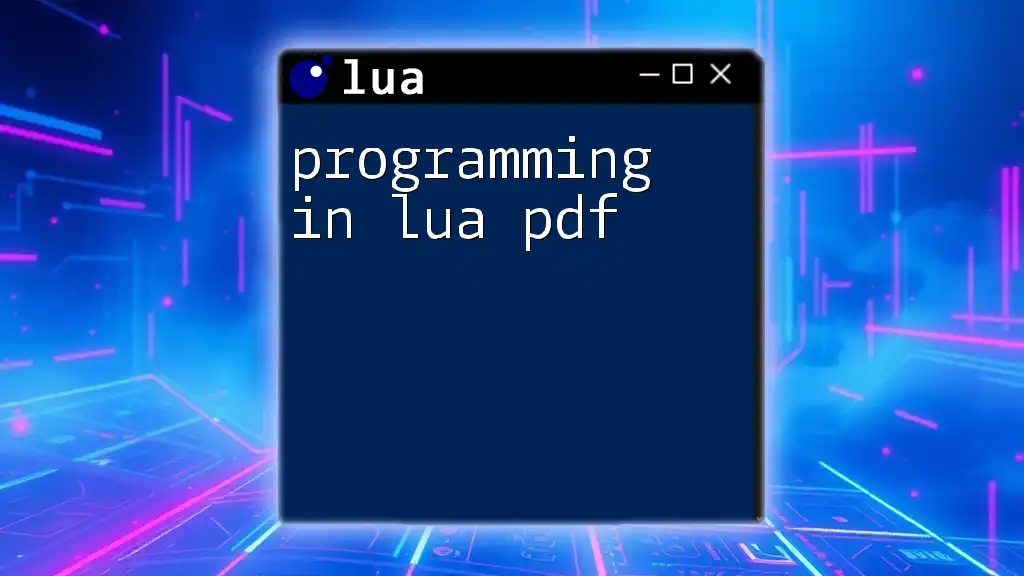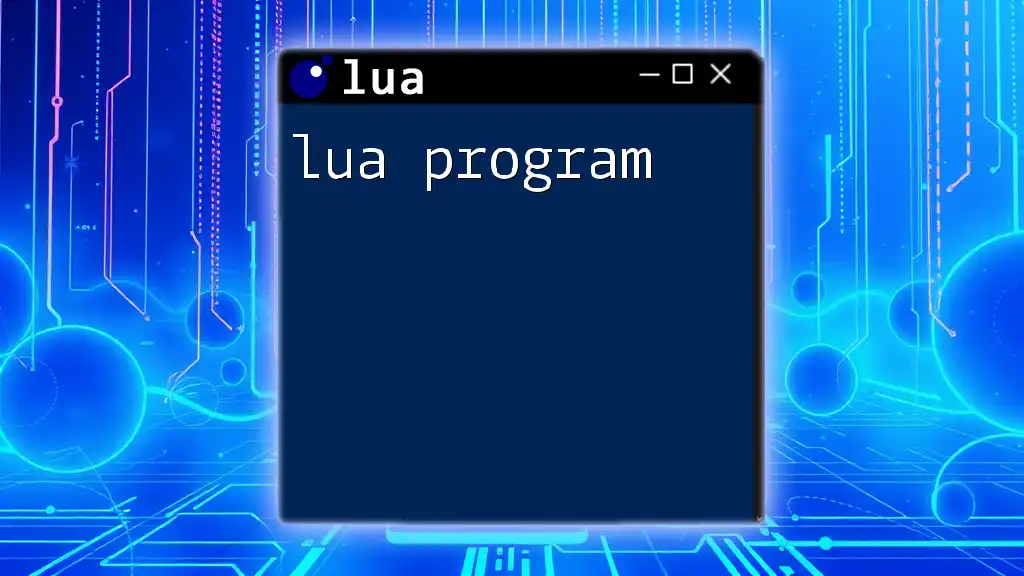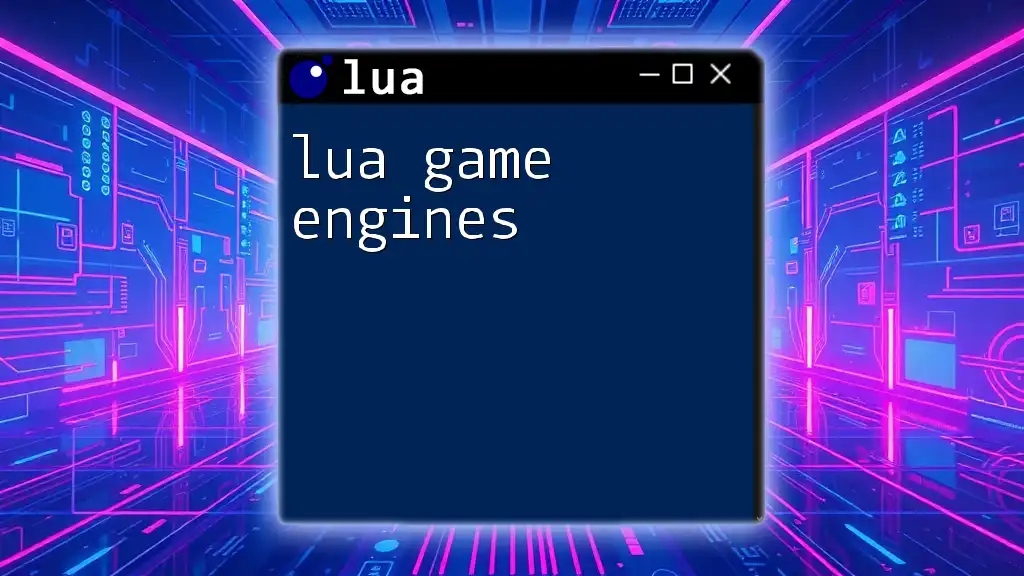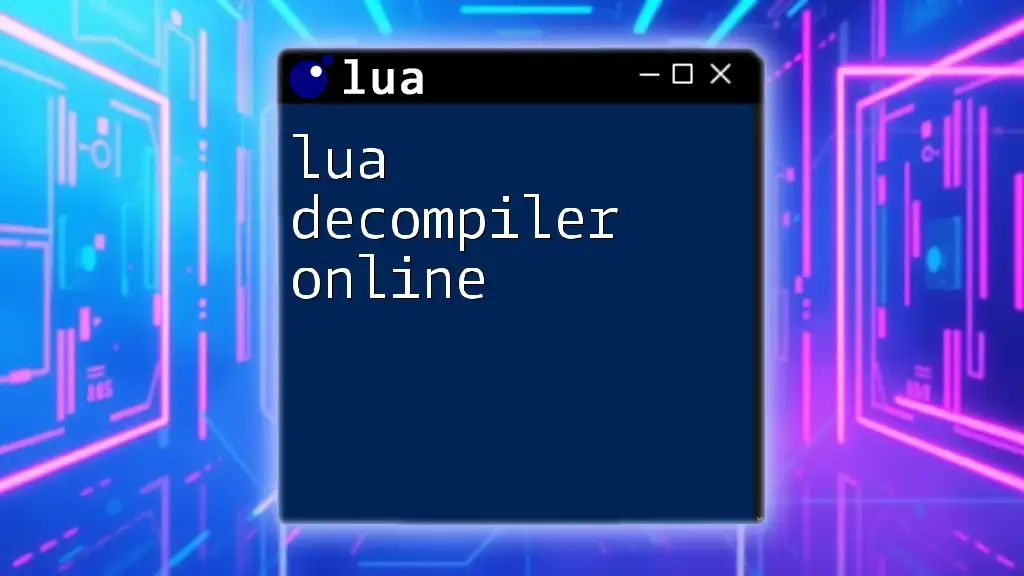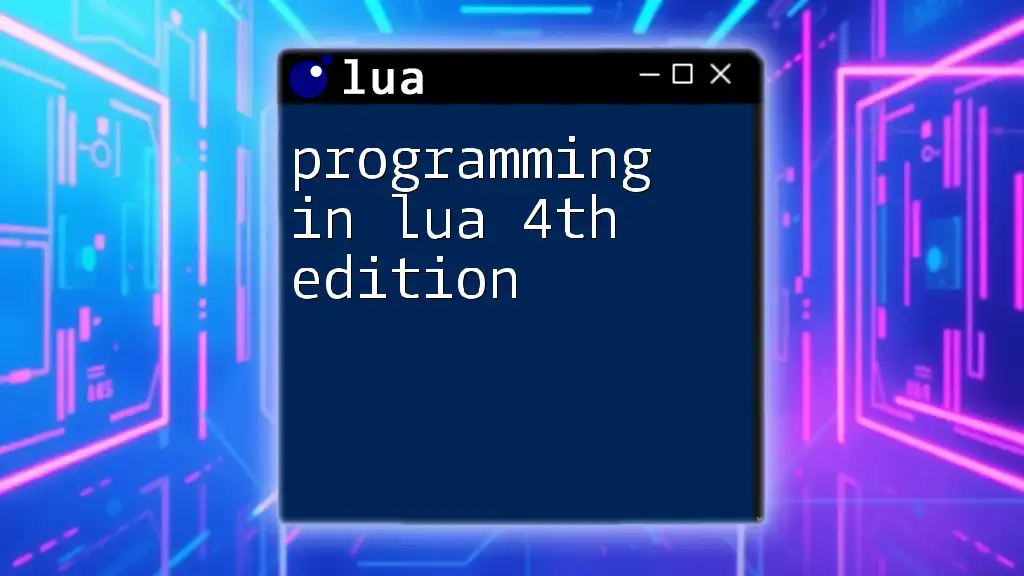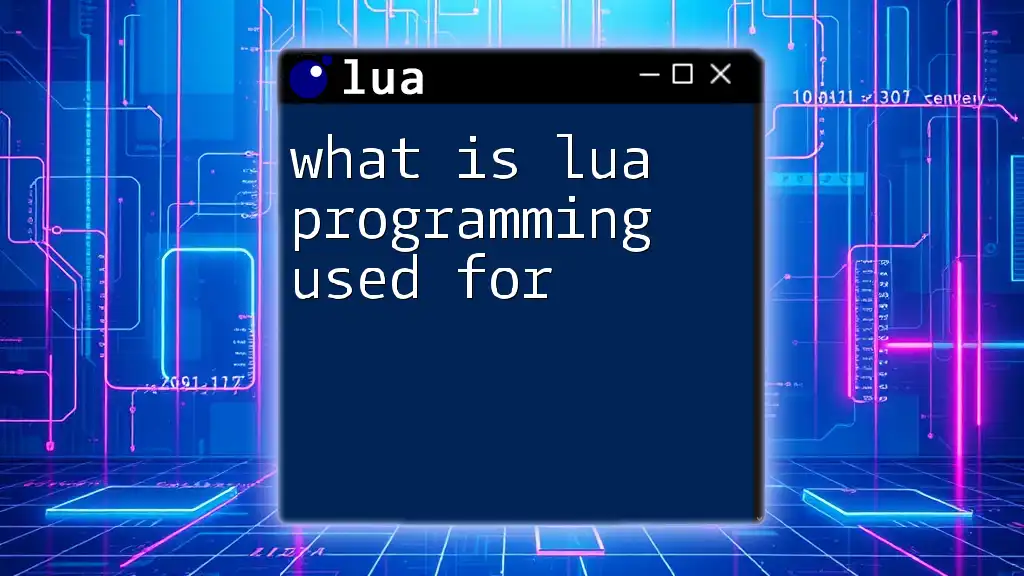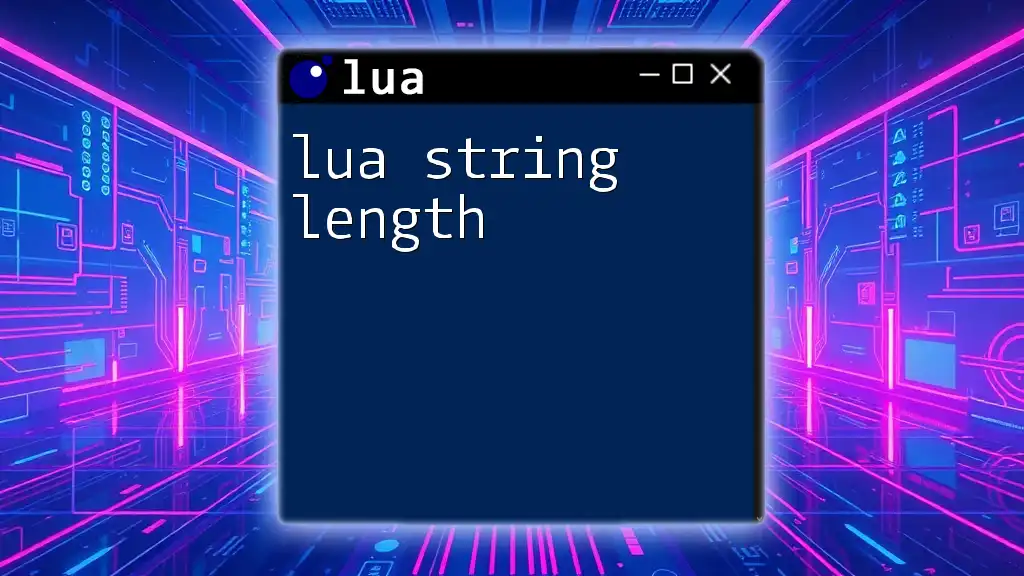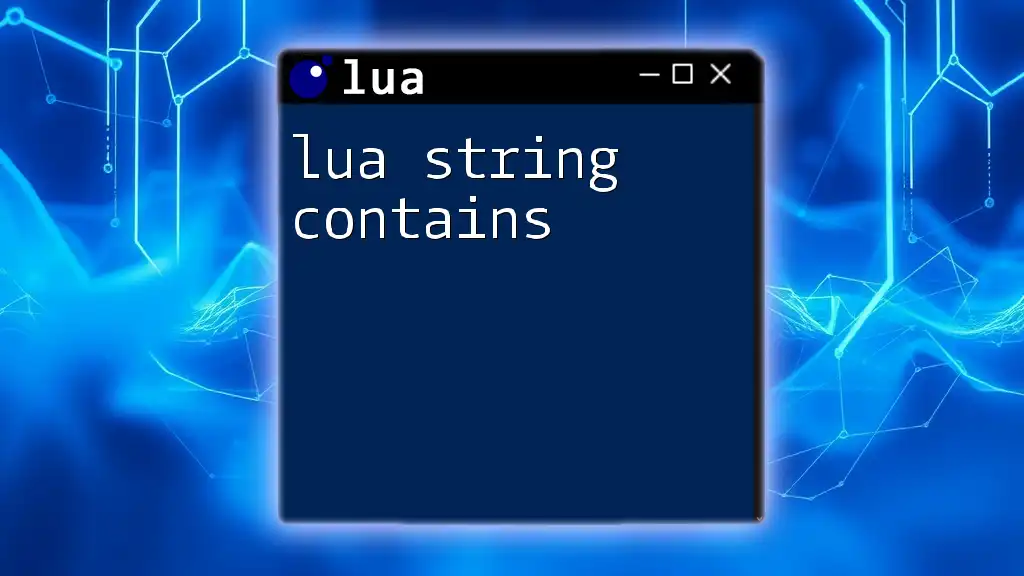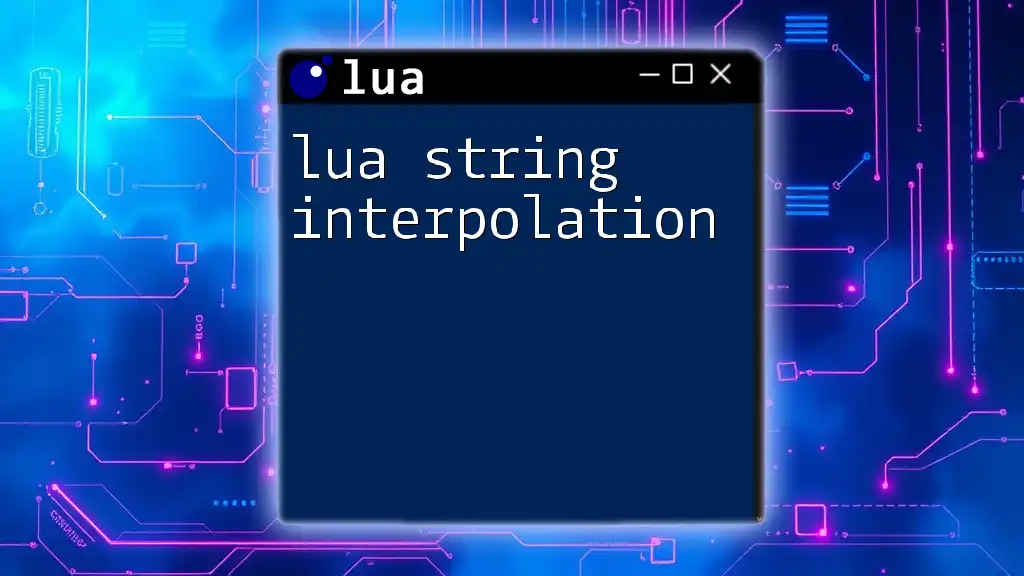"Lua programming online provides a user-friendly platform for learners to master Lua commands efficiently through concise tutorials and interactive examples."
-- Example of a simple Lua function
function greet(name)
return "Hello, " .. name .. "!"
end
print(greet("World")) -- Output: Hello, World!
Setting Up for Online Lua Programming
Exploring Lua Online Environments
When it comes to lua programming online, there are several environments where you can write, test, and execute Lua code without needing to install a local development environment. Here’s a brief overview of different online tools that can aid in your learning journey:
-
Lua Interpreter Online: This tool allows you to run Lua scripts directly in your web browser. It's particularly useful for testing small code snippets quickly.
-
Lua Compiler Online: Online compilers enable you to compile and execute Lua code, which is ideal for larger scripts where you want to see how the code behaves when compiled.
-
Lua Playground: This is an interactive environment where learners can experiment with Lua code. It often includes built-in examples to help beginners understand the language.
Choosing the Right Tool for You
When selecting an online tool for lua programming online, it’s important to choose one that suits your needs. Factors to consider include:
-
User Interface: Some online IDEs have a more user-friendly interface than others. A clean design can enhance your coding experience.
-
Features: Look for features like syntax highlighting, auto-completion, and debugging tools. These features can make coding easier and more efficient.
-
Performance: The speed of the interpreter or compiler can vary. A well-performing tool will provide immediate feedback on your code.
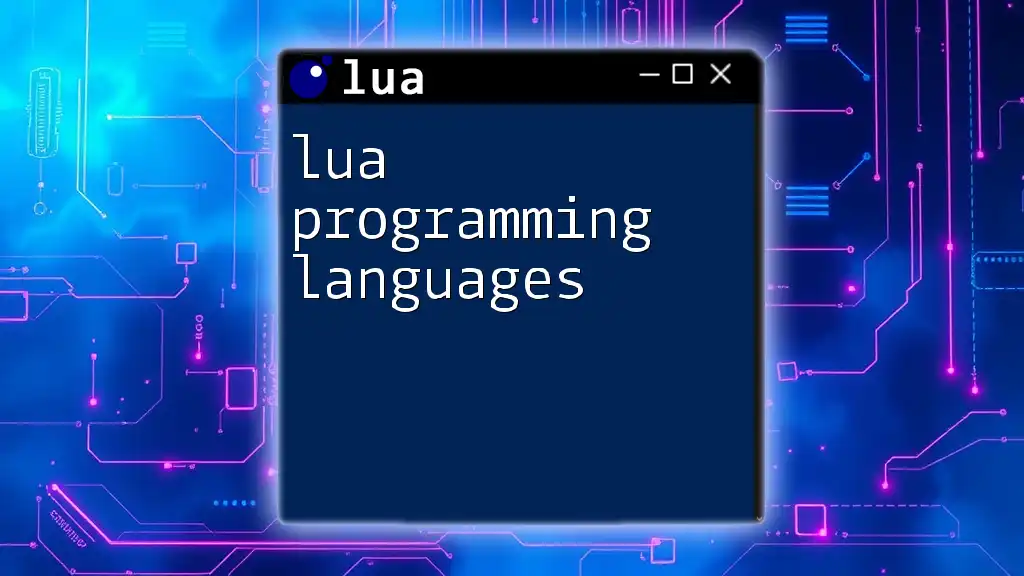
How to Write Lua Code Online
Basic Syntax and Features of Lua
Understanding the basic syntax of Lua is crucial when you start lua programming online. Below is a fundamental example to get you started with writing Lua code:
print("Hello, World!")
This simple script outputs "Hello, World!" to the console. The `print` function is essential for displaying text and is often used by beginners to verify that their environment is set up correctly.
Writing Your First Script
Using a Lua Online Interpreter
To input and run your first Lua script using an online interpreter, follow these steps:
-
Select an Online Interpreter: Choose a popular one like Repl.it or JDoodle.
-
Enter Your Code: In the provided code editor, type your Lua script.
-
Run the Code: Click the 'Run' button to execute your script and view the output.
This process allows you to test small scripts quickly, making it ideal for beginners who want to learn and experiment with lua programming online.
Testing Lua Script Online
When you test Lua scripts online, you gain immediate feedback. This instant validation of your code helps reinforce learning. Be sure to:
- Debug your code as needed, addressing syntax errors or runtime issues that the compiler may identify.
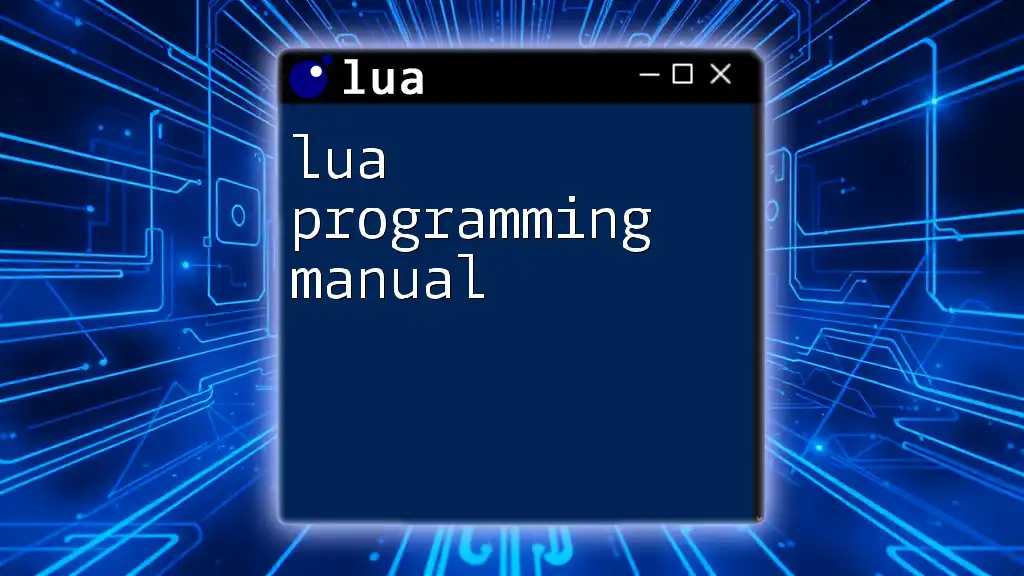
Advanced Lua Programming Concepts
Data Types and Structures
Lua has several fundamental data types, including numbers, strings, booleans, and tables. Understanding these data types is crucial as they are the building blocks of Lua programming.
Example: Tables in Lua
Tables are a powerful feature in Lua, serving as both arrays and dictionaries. Here’s how to define and use a table:
myTable = {name = "John", age = 30}
print(myTable.name) -- Outputs: John
In this snippet, `myTable` is a table with two fields. Tables allow you to group related data, making them essential for complex programs.
Functions and Control Structures
Creating and Using Functions
Functions are reusable blocks of code that perform specific tasks. Here’s how to define a simple function:
function greet(name)
return "Hello, " .. name
end
print(greet("Alice")) -- Outputs: Hello, Alice
This example defines a function called `greet`, which takes a parameter `name` and returns a greeting message.
Control Flow in Lua
Control flow statements, including conditional statements and loops, enable you to control the execution of your code. An example of a conditional statement is shown below:
local age = 20
if age >= 18 then
print("You are an adult.")
else
print("You are a minor.")
end
This block checks if `age` is 18 or older and responds accordingly with a message.
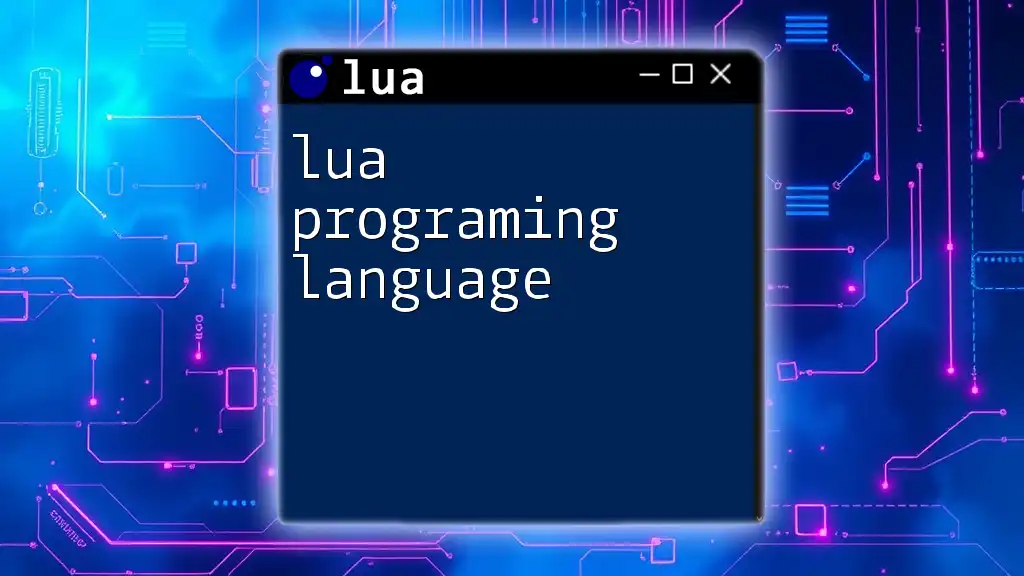
Utilizing Online Lua Compilers and Editors
What is a Lua Online Compiler?
A lua online compiler allows you to compile and execute Lua code through a web interface. This convenience eliminates the need for local installation, making it accessible for rapid development.
Popular Lua Online Tools
Lua File Editor Online
Many online tools provide file editing capabilities. These allow you to create and save Lua scripts while providing functionality such as syntax highlighting, which can make coding less error-prone.
Lua IDE Online: Comparison of Options
Several online IDEs cater specifically to Lua programming. Tools like LuaGlider, Repl.it, and Codewars each have unique features and interfaces, making it beneficial to try a few to determine which one feels most comfortable and beneficial for your needs.
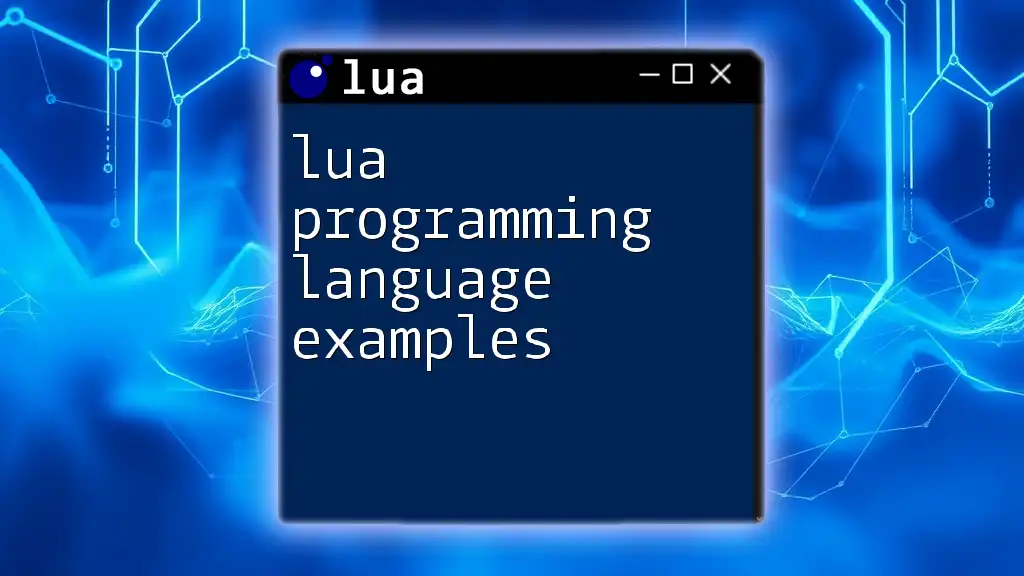
Building Projects with Lua Online
Creating a Simple Game in Lua
Creating a simple game is an excellent way to apply your Lua skills. Here’s a brief overview of how to structure a game project using Lua:
-
Game Design: Start by planning the game mechanics and structure, which includes defining the game’s goal and rules.
-
Code Structure: Break your game down into manageable components (e.g., player input, game loop).
-
Example Code: A basic game loop might look like this:
while true do
print("Game is running")
-- Add game logic here
os.execute("sleep 1") -- Simulates a delay
end
Collaborating on Lua Projects
With online collaboration tools, you can work on Lua projects with others. Platforms like GitHub enable version control, allowing multiple contributors to work seamlessly. Online forums and Lua community channels can also provide support and resources.
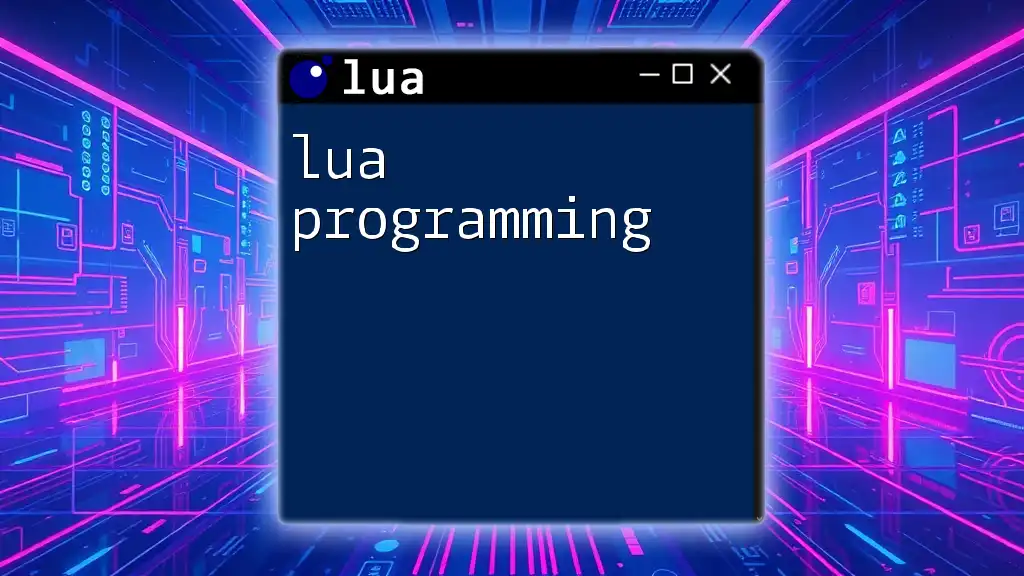
Resources for Further Learning
Online Courses and Tutorials
Several platforms offer courses tailored to lua programming online. Websites such as Udemy, Coursera, and Codecademy provide a variety of resources that cater to different skill levels, from beginners to advanced programmers.
Community and Forums
Engaging with the community is invaluable. Consider joining forums like Stack Overflow or dedicated Lua forums and Discord servers where you can ask questions, share insights, and network with other Lua enthusiasts.
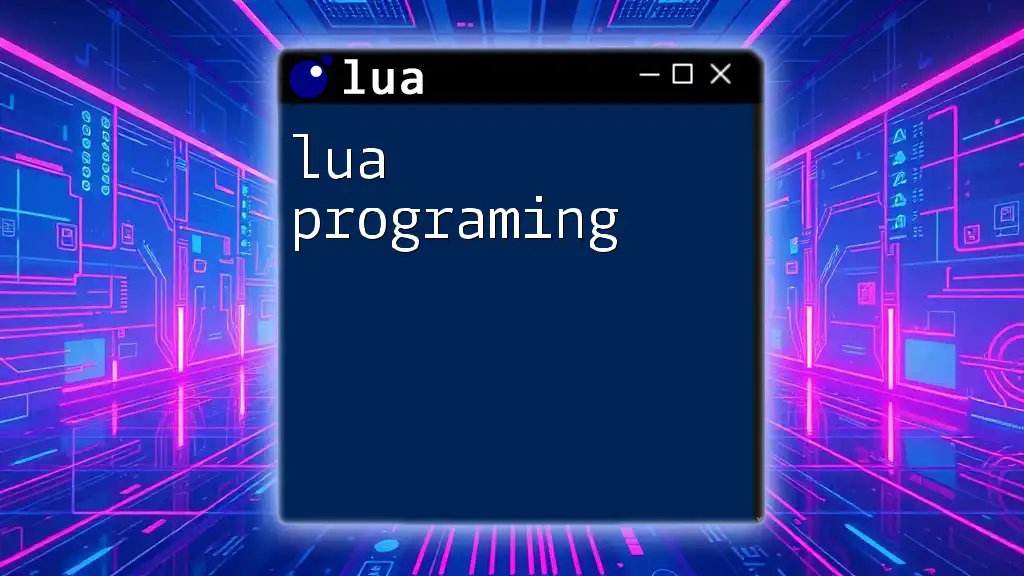
Troubleshooting Common Issues
Debugging Lua Code Online
Debugging online scripts can be challenging, but many online compilers provide built-in debugging tools. Look for features that highlight errors, offer stack traces, or allow for step-by-step execution.
Frequently Asked Questions
As you embark on your lua programming online journey, you may encounter common questions regarding syntax, libraries, and best practices. Engaging in community forums can provide answers and help deepen your understanding.
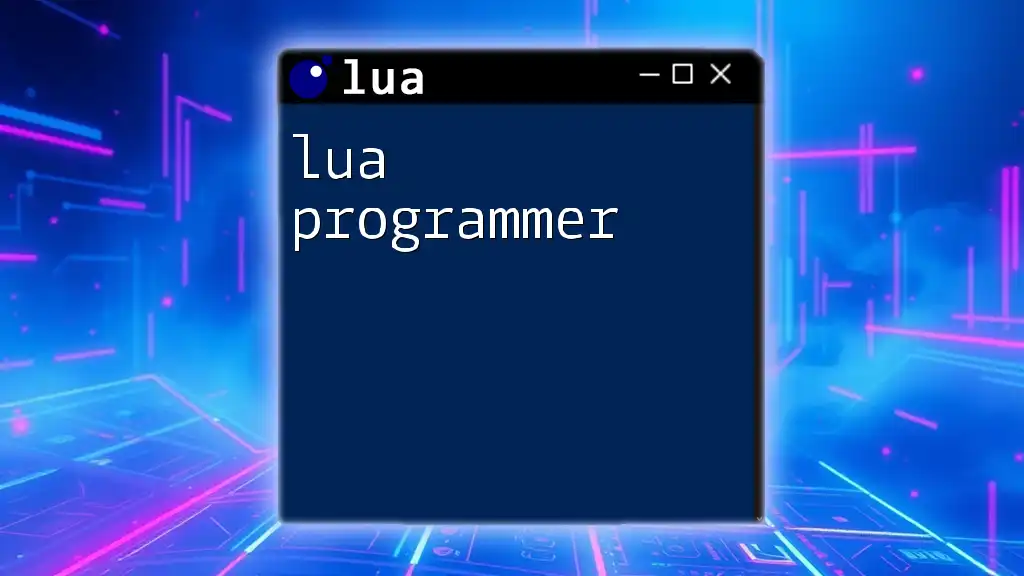
Conclusion
The future of Lua programming is bright, offering vast potential across multiple fields such as game development, mobile applications, and embedded systems. By leveraging the availability of online resources and tools, you can embark on your lua programming online journey with confidence.
Continue experimenting with Lua, collaborating with others, and utilizing both the learning resources and powerful online environments available to you. Happy coding!

